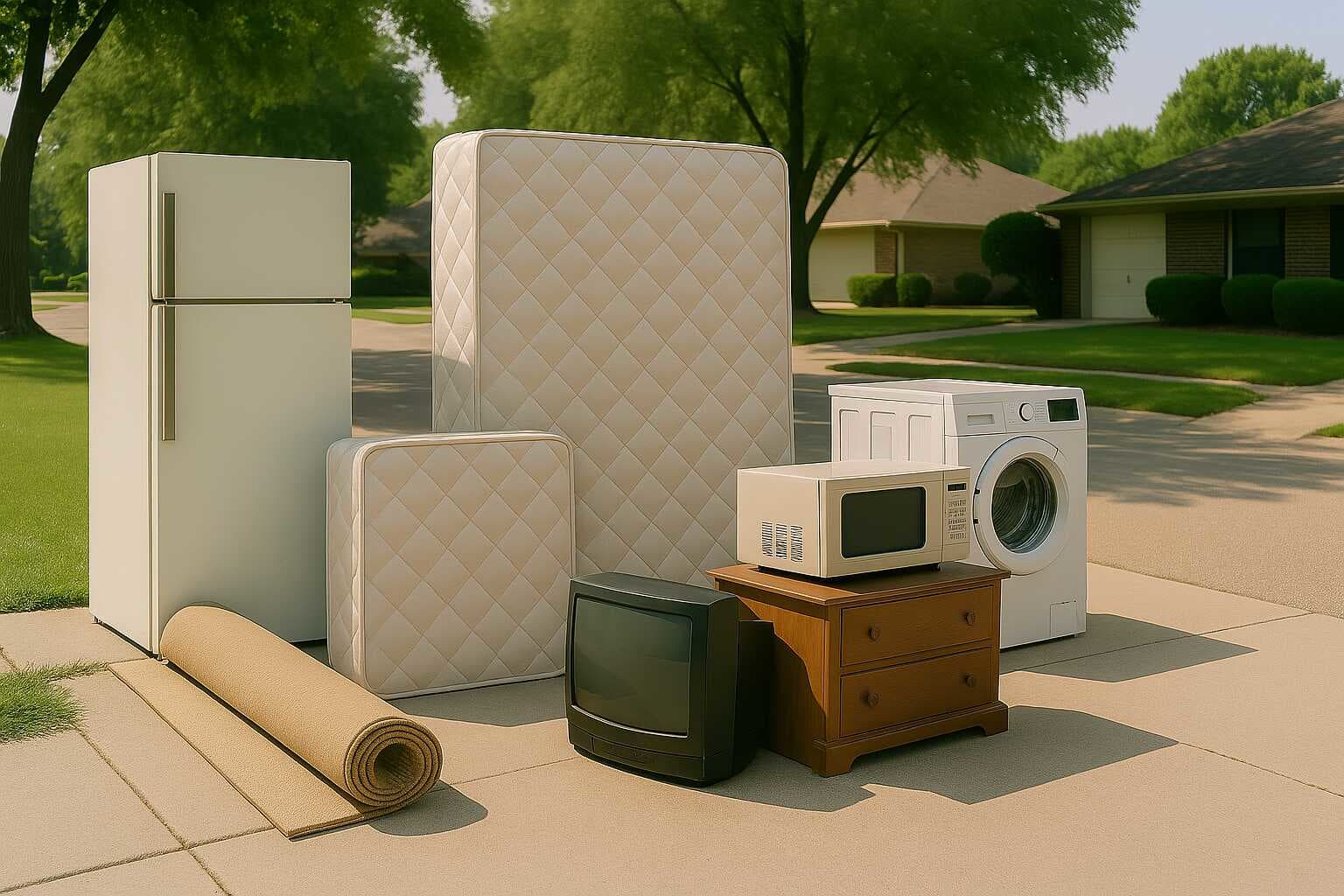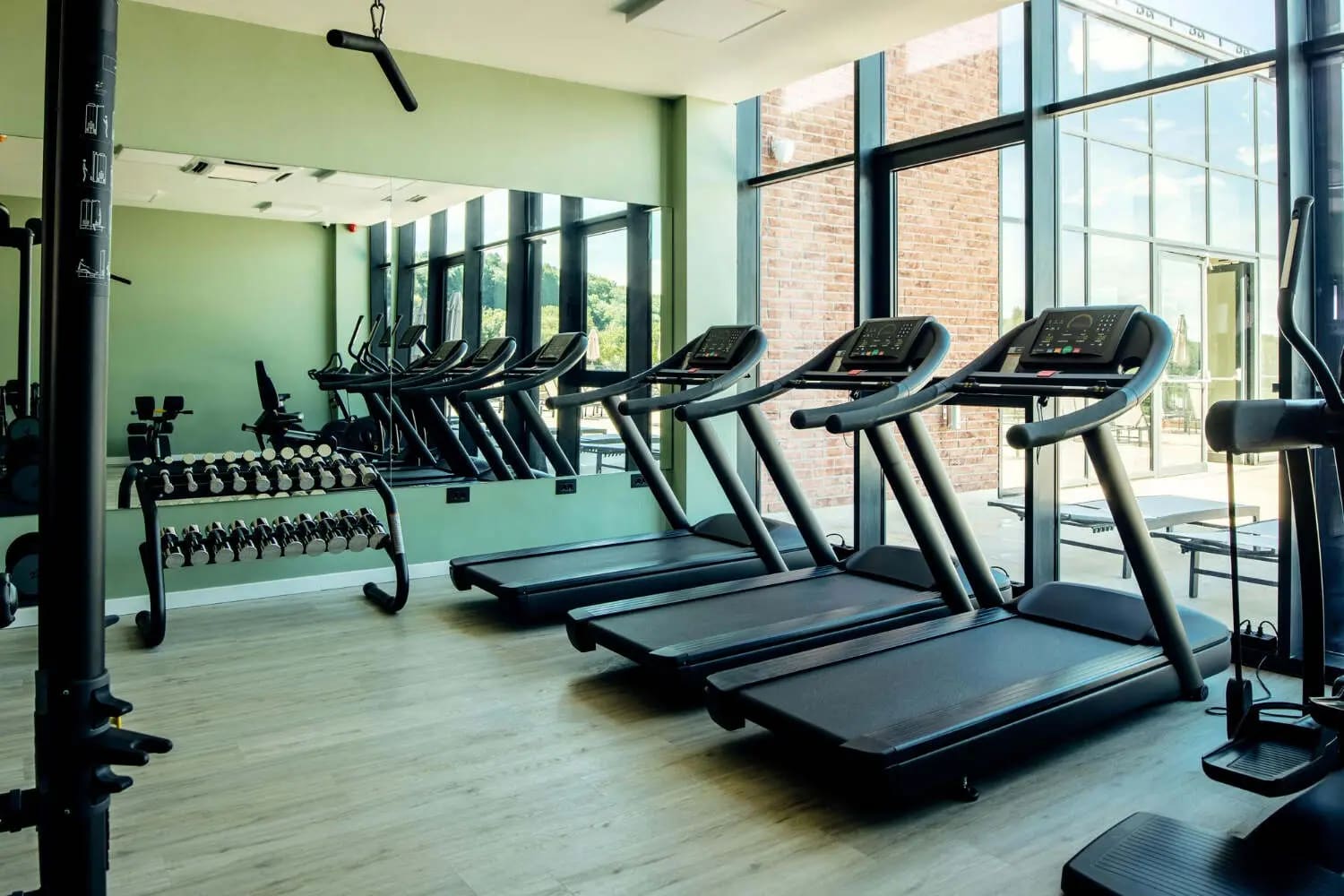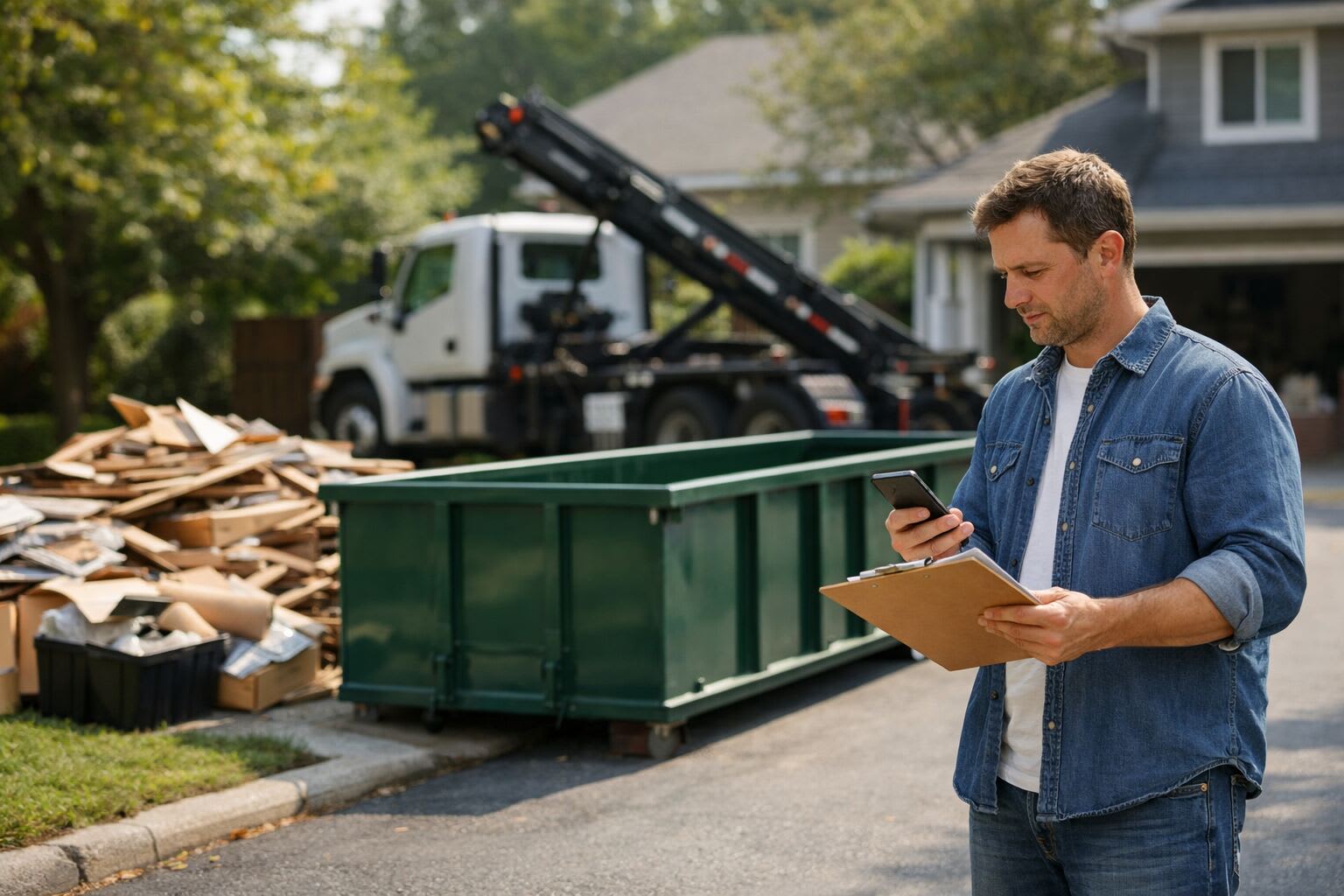BLOG / HOW TO
How to Dispose of Bulky Items & Old Appliances


Dumping a broken fridge or an old washer can appear simple, just haul it on out to the curb, right? Wrong. Correctly disposing of large appliances and other bulk goods isn't convenient, it's about safety, the environment, and in a great many cases, the law.
Let's sort out how to dispose of Large Appliances responsibly, legally, and safely.
At WeCycle, we help make the process easy and stress-free. From old dishwashers to saggy sofas, we know how to clear the clutter without the hassle.
Why Proper Disposal Matters
Improper disposal of large appliances and other heavy items can ravage the planet and even be illegal where you live. If you're unsure how to dispose of bulky items properly, the tips below will help you stay compliant and eco-friendly.
The Environmental Impact:
- Air conditioners and refrigerators contain refrigerants that can harm the ozone layer.
- Metals and plastics from appliances do not decompose in landfills for centuries.
- Parts of many products, when burned or left to rot, release toxic chemicals into the groundwater and soil.
Legal Consequences
Dumping bulky items in alleys, parks, or empty lots is illegal in most U.S. cities.
- Penalties for illegal dumping range from hefty fines to possible jail time.
- Many municipalities require scheduled pickups or approved drop-offs for these items.
So if you’re wondering how to dispose of large appliances, know that doing it the right way protects both your community and your wallet.
What Counts as a Bulky Item or Large Appliance
 Before you can dispose of anything, it’s helpful to know what qualifies as a bulky item. In general, these are household goods that are too big to fit in a standard trash bin.
Before you can dispose of anything, it’s helpful to know what qualifies as a bulky item. In general, these are household goods that are too big to fit in a standard trash bin.
Common Bulky Items Include:
- Refrigerators
- Washing machines & dryers
- Stoves & ovens
- Water heaters
- Dishwashers
- Mattresses & box springs
- Sofas & recliners
- TVs and large electronics
If you’re ever unsure, contact your local waste management office to verify. Not everything large is considered a bulky item (e.g., carpeting may be handled separately).
Still unsure? Reach out to your local waste authority or call WeCycle for help.
How to Dispose of Old Appliances: Step-by-Step Guide
Many homeowners ask, how do you get rid of old appliances without causing legal or environmental problems? If you're wondering how you dispose of old appliances, these tested and proven steps will guide you to do it legally and safely.
1. Look for Manufacturer or Retailer Take-Back Programs
Several retailers and manufacturers have take-back programs when you purchase a new appliance.
- Best Buy and Home Depot, for instance, frequently have haul-away services when you buy a replacement.
- Some stores charge extra, but others add it to delivery prices.
- LG, Whirlpool, and major brands also recycle through their websites.
This is often the easiest and fastest option for large appliance disposal.
2. Call Your Garbage Collection Company
Most municipalities have bulky item pickup services - but often you need to schedule in advance.
-
Check your local city's website for "bulk trash pickup" days or collection schedules.
-
Some towns have free pickups once or twice a year and charge a small fee for others.
-
You might have to place items on the curb by a certain time or location.
Don't overlook this route - placing items on the curb without permission could result in a fine.
3. Donate If It Still Works
If your second hand appliance is still functioning, donating it is an excellent means of extending its life and putting a smile on someone's face.
Here's where you can donate it:
-
Habitat for Humanity ReStores
-
Salvation Army
-
Goodwill Industries
-
Local shelters or churches
Call first to make sure they accept appliances, and get your item clean and in good working order.
4. Sell or Give It Away Locally
If you'd like to make a few bucks (or just get rid of it in a hurry), try selling it online:
-
Facebook Marketplace
-
Craigslist
-
OfferUp
-
Buy Nothing Groups (great for local give-aways)
Tip: If the appliance is "smart" (WiFi-enabled), don't forget to delete any personal data before donating it.
Recycling Large Appliances: What You Need to Know
Even if your dead washer is useless, recycling may be a possibility and often the most environmentally sound.
What Can I Recycle
- Metals (steel, copper, aluminum)
- Glass
- Plastic enclosures or containers
- Refrigerants (only if safely removed)
Where to Recycle
- Local scrap yards or metal recycling centers
- Municipal recycling facilities
- Private haulers or green-recycling programs
You can also search for programs under the EPA's Responsible Appliance Disposal (RAD) Program - a national program to offer safe appliance handling.
Don’t forget: WeCycle partners with certified recycling facilities to make this process even easier for you.
Bulky Item Pickup vs Drop-Off: What's Best?
Both have their pros and cons, and the better one for you will depend on your time needs, type of item, and city ordinance.
Choose Pickup When:
- The item is too heavy or too large to transport
- You've scheduled a bulk collection special day
- You’re using a junk removal service like WeCycle
Choose Drop-Off When:
- You require immediate disposal (no waiting for pickup schedules)
- You're dropping off multiple items at one time
- You live near a dump site or recycling facility
Either way, WeCycle has you covered. We offer both pickup and eco-friendly disposal services on your schedule.
How to Dispose of Large Appliances and Other Bulky Items Safely
Disposing of bulk items isn't just a matter of where you get rid of them, it's also about how to handle them safely.
Safe Removal Tips:
- Turn off appliances at least 24 hours in advance of removal (especially fridges/freezers)
- Always remove water hoses from washers, dishwashers, or fridges
- Use gloves and closed shoes to prevent injury
- Use a dolly or hand truck for easy removal
- Call in the reinforcements! Do not try to lift heavy loads yourself
Special Considerations
- Refrigerant in refrigerators/ACs must be serviced by qualified technicians
- Don't cut wires or take apart appliances if you have no idea what you're doing
- When in doubt, call WeCycle’s pros, we handle it from start to finish
What NOT to Do With Bulky Items
These are typical errors that must be avoided:
❌ Don't dump in vacant lots, parks, or alleys – In most places, this is against the law
❌ Don't assume your regular trash service will collect it – They won't usually
❌ Don't leave it on the curb without pre-arranging pickup – You might be fined
❌ Don't smash it without being aware of its contents – Risk of harm or exposure to chemicals
Learn more: How to dispose of hot tub
Frequently Asked Questions
How do I dispose of a large appliance?
Check if the store you bought the replacement from offers haul-away. If not, call WeCycle, your city waste department, or a local recycling center.
May I leave old appliances in the street?
Only if you've scheduled a bulk item pickup with your local sanitation service. Spontaneous dumping will cost you a fine.
Where to Throw Away Bulky Items?
If you are unsure where to get rid of big things like old furniture, mattresses, or appliances, begin by calling your city's waste management department. Most cities offer:
-
Scheduled collections of bulky items (sometimes by request or on specified dates)
-
Drop-off locations at city-run transfer stations or recycling centers
-
Arrangements with independent junk removal companies for large or hazardous items
You can also hire firms such as WeCycle, which offer environmentally friendly pickup and disposal of large items, spare you time and possible fines.
Who will pick up my old fridge for free?
Some non-profits like Habitat for Humanity or metal scrap collectors may offer free pickup. But for fast, guaranteed service, book with WeCycle.
Where do I get rid of large items nearby?
Search your local waste management website or schedule a pickup with a junk removal service like WeCycle.
End Note: Choose the Right Disposal Option for a Greener Tomorrow
The disposal of large appliances doesn’t have to be a drag. With a little planning, you can dispose of your large items legally, safely, and even in an environmentally friendly manner.
Remember:
- Reuse or donate where you can
- Recycle responsibly
- Never dump illegally
- Protect your health and the environment
- Hire professionals for heavy or hazardous items
Let WeCycle Help You Do It the Right Way
Whether it’s a busted fridge, an old couch, or a broken stove — WeCycle makes clearing your space easy and stress-free.
KB Choudhury is the Chief Executive Officer of WeCycle, a technology-driven platform dedicated to transforming the recycling and waste management industry. Under his leadership, WeCycle focuses on creating efficient, data-powered solutions that simplify waste collection, promote eco-friendly practices, and support a sustainable circular economy. Choudhury’s vision for WeCycle centers on leveraging innovation and digital tools to make recycling smarter, more accessible, and impactful for both businesses and communities.
Read our latest blog posts
Need junk gone fast? See pricing in your area
Enter your zip code to see if Wecycle operates in your location.



